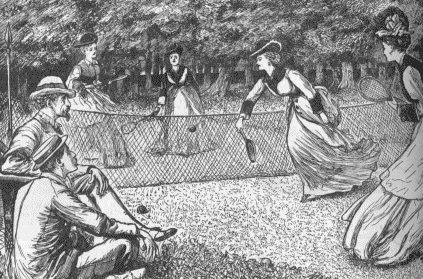 The film “Battle of the Sexes” did a great job of showcasing the struggles women have faced through the years regarding pay equity. When Billie Jean King (played by Emma Stone) and her colleagues pointed out to a tennis promoter that their matches sold as many tickets as the men’s matches, he floundered for some other plausible reason to pay men more–and failed. It has been about 40 years since King beat Bobby Riggs in a tennis match, but women still get paid about 80 cents for every dollar that a man makes.
The film “Battle of the Sexes” did a great job of showcasing the struggles women have faced through the years regarding pay equity. When Billie Jean King (played by Emma Stone) and her colleagues pointed out to a tennis promoter that their matches sold as many tickets as the men’s matches, he floundered for some other plausible reason to pay men more–and failed. It has been about 40 years since King beat Bobby Riggs in a tennis match, but women still get paid about 80 cents for every dollar that a man makes.
With the passage of AB 168, the California Legislature and Governor Brown made it illegal for prospective employers to ask job applicants about their salary history as of January 1, 2018. and that is a giant step forward towards (finally) leveling the playing field. Ironically enough, Emma Stone recently addressed the gender gap in terms of pay when she revealed that some of her male co-stars had taken pay cuts so that she could be paid the same as them.
Stone noted that pay equity is more than merely a matter of pride, pointing out that her pay for her next movie will likely be based on her pay for her previous movie. It does not take a rocket scientist to conclude that the pay gap for women will never be closed if they always start from behind. To point to another recent example from Hollywood, the success this summer of “Wonder Woman,” with its mind-boggling box office, completely destroyed the notion that an all-female production team could not make a blockbuster action movie. The success of “Wonder Woman” almost immediately led to a blockbuster deal for director Patty Jenkins, who has now inked a deal for the “WW” sequel which will make her the highest paid female director of all time.
California’s lawmakers have been trying for some time to close the pay gap; in 2015, the Equal Pay Act was passed, requiring equal pay for “substantially similar work” and making it more difficult for employers to claim that pay inequities were based on “bona fide” factors “other than sex.” Governor Brown initially refused to make salary inquiry illegal, in the hopes that the new law would spur change. The Equal Pay Act was also amended a couple of times but in the end, lawmakers and the Governor concluded that they needed to give the law more teeth.
Thus AB 168 will add Section 432.3 to the California Labor Code. Employers will not only be prohibited from asking applicants about their salary history, but also will be prohibited from using an applicant’s salary history as a “factor” in determining whether to hire and deciding what the applicant should be paid. Violations of the restrictions on inquires an employer can make is a misdemeanor but it remains to be seen whether anyone will be prosecuted under the law. In any event, the goal is to deter such behavior and only time will tell if it worked.




